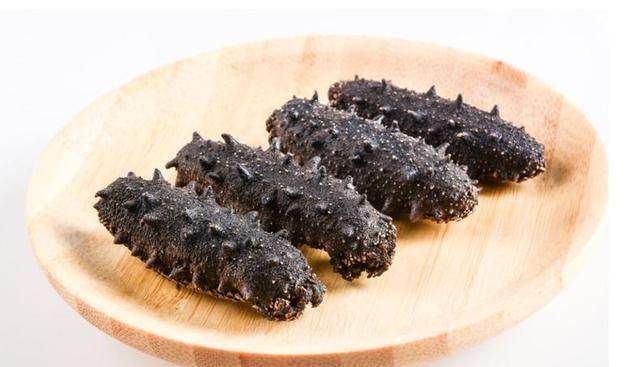Introduction: In life, the elderly often say “there is ginseng in the ground, and sea cucumber in the water.” Through this saying, we can also see that ginseng and sea cucumber have the same status, and the status of these two substances is very high.
We all know that eating ginseng appropriately can bring good health benefits, and eating sea cucumber also has the same principle, both can nourish the body and promote health.
Although sea cucumber is a high-nutrient value seafood product, rich in trace elements and proteins, some people are not suitable for consuming sea cucumber. Blind intake can pose health risks.
Nutritional Value of Sea Cucumber
According to the records in “Compendium of Materia Medica Addendum”: “Sea cucumber has a sweet and salty taste, tonifies the kidneys, benefits essence, controls urine, it is warm and tonifying, sufficient to rival ginseng, hence its name sea cucumber.”
The nutritional value of sea cucumber is also very rich, not only containing abundant vitamins and proteins, but also active substances such as manganese, calcium, iron, potassium, zinc, selenium, and other active materials.
Furthermore, sea cucumber contains other active ingredients such as aminoethyl glucan, holothurin, fucose acid, and fucoidan composed of saponified acidic polysaccharides. In addition, it contains 18 types of amino acids, with very low cholesterol content.
Every 100 grams of fresh sea cucumber contains 76.8 grams of water, 0.28 grams of fat, 15.68 grams of protein, 0.06 grams of riboflavin, and other nutrients.
What are the benefits of regularly consuming sea cucumber?
Improves Sleep
People with poor sleep quality at night can consume sea cucumber appropriately. Sea cucumber contains abundant lysine, which can enhance neurological function and help improve sleep quality.
With improved sleep, the body can get sufficient energy circulation, enhancing work and learning efficiency the next day, as well as helping vitality, contributing to overall physical health.
Protects Cardiovascular and Cerebrovascular Health
Sea cucumber contains rich acidic polysaccharides, an excellent active substance that can effectively reduce blood sugar, blood pressure, and blood lipids, helping prevent atherosclerosis.
Additionally, this type of active substance can delay aging, repair old myocardial infarction, and effectively protect cardiovascular and cerebrovascular health.
Improves Mood
During winter, restlessness and unstable mood are common. Sea cucumber, being a warm-natured food, helps tonify the heart and kidneys, nourishing the spirit.
Moreover, sea cucumber can also provide a nourishing and moisturizing effect, suitable for individuals prone to tension and restlessness, helping improve mood.
Brain Health and Cognitive Enhancement
Sea cucumber is rich in zinc elements, which enhance the internal cellular functions of the body, facilitating protein synthesis.
Furthermore, zinc elements can effectively enhance cerebral cell nutrition, promote brain health and cognitive enhancement, and assist in the healthy development of brain cells, nurturing overall brain health.
Is sea cucumber harmful for cancer patients?
Fresh sea cucumber contains approximately 16.3% protein, 77.2% water, 0.9% carbohydrates, as well as vitamins, proteins, acidic polysaccharides, and collagen.
For cancer patients, adequate intake of protein-rich foods is necessary, and sea cucumber is precisely rich in protein and various micronutrients, improving immunity and resistance when consumed rationally and appropriately.
Therefore, sea cucumber is not a trigger for cancer patients. It is generally safe for consumption. However, certain precautions should be taken when consuming sea cucumber for the following 8 groups of people to avoid potential risks.
…
How often should sea cucumber be consumed?
We all know that sea cucumber has many health benefits. While consuming it properly can have positive effects on health, overconsumption can cause health issues.
Health experts suggest consuming sea cucumber once a week, with each intake not exceeding 100 grams.
The best time to eat sea cucumber:
Sea cucumber is a nutritious food with medicinal properties, and consuming it at the right time allows for maximum absorption of its nutritional benefits. It is recommended to consume sea cucumber on an empty stomach in the morning. This fasting state aids in stomach utilization and absorption, ensuring the absorption of all the effective components of sea cucumber, benefiting overall health.
The most nutritious ways to consume sea cucumber:
1. Sea cucumber porridge can be consumed for breakfast, suitable for the elderly, preserving the texture of sea cucumber while aiding in digestion and absorption;
2. Sea cucumber salad can be made by washing and slicing sea cucumber, adding suitable seasonings, providing a healthy way to absorb its nutrients;
3. Sea cucumber egg custard can promote nourishing of the blood and kidneys, enhancing vitality.
Conclusion: It is important to remember that though sea cucumber is a highly nutritious supplement, it should be balanced with other nutrients for a healthy diet. Understanding the high protein content and nutritional intake in sea cucumber helps maintain overall health.


